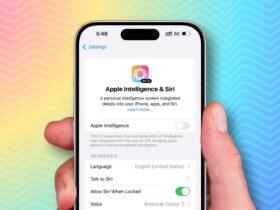Daftar Isi
Apple, known for its stringent App Store policies, has made a surprising move: it now permits retro game console emulators on its platform. This significant shift opens up new possibilities for gaming enthusiasts and developers alike. Let’s dive into the details.
The Evolving Emulator Landscape: Apple’s New Approach to Retro Gaming
Apple’s traditionally strict stance against game emulators, which allow users to play classic console games on modern devices, has long frustrated retro gaming enthusiasts. However, a significant shift in the App Store’s guidelines now signals a new era for those eager to relive their favorite vintage games on Apple platforms.
A New Policy for Retro Gaming
The latest update to Apple’s App Store guidelines marks a pivotal change in the company’s approach to game emulators. Previously, Apple prohibited apps that facilitated emulator functionality, citing potential legal and security concerns. The revised guidelines, however, now explicitly permit “software that is not embedded in the binary,” which includes categories like HTML5 mini apps, mini games, streaming games, chatbots, and plug-ins. Crucially, this update opens the door for retro game console emulator apps to offer downloads of game content, provided they comply with all relevant guidelines and legal requirements.
This policy change reflects Apple’s acknowledgment of the growing demand for retro gaming and its recognition of the technological advancements that allow safe and legal emulation. By allowing emulator apps to legally offer game downloads, Apple aligns itself with the evolving gaming landscape and the interests of its user base.
While the updated guidelines create new opportunities for retro gaming, they also bring to light the complex legal landscape surrounding emulator use. Emulators themselves are generally legal, as they are merely tools that enable the running of game software. However, the legality of ROM files—digital copies of games—varies significantly. Some ROMs are in the public domain or are distributed under licenses that permit their use, but many remain under copyright, leading to potential legal complications.
For instance, companies like Nintendo are known for their rigorous enforcement of copyright on their game files. This means that while emulators may now be more accessible through Apple’s App Store, users and developers must navigate the legal intricacies of ROM distribution carefully. Ensuring that only legally permitted ROMs are offered and used remains a critical responsibility for developers and users alike.
Implications for the Gaming Community
Apple’s updated policy represents a milestone for the retro gaming community, providing new avenues for enjoying classic games on contemporary devices. It reflects a broader trend of embracing digital nostalgia while balancing legal and ethical considerations. For developers, this change offers the potential to innovate within a newly sanctioned framework, creating apps that cater to the enduring love for retro gaming.
For users, this means greater access to beloved games of the past, revitalized for modern technology. However, it also underscores the need for awareness and compliance with copyright laws to ensure that this renewed access remains both enjoyable and legally sound.
In conclusion, Apple’s revised App Store guidelines signify a progressive shift in the emulation landscape, blending the excitement of retro gaming with the responsibility of adhering to legal standards. As the emulator landscape evolves, so too does the potential for a richer, more inclusive gaming experience on Apple devices.
Read More: Nintendo Virtual Console: The Joy of Retro Gaming
The New Opportunities
Apple’s move opens doors for developers to create legitimate emulator apps. These apps can provide access to classic games, preserving gaming history and nostalgia. However, the specifics remain unclear—will Apple allow emulators that run ROMs from external sources, as seen on Android and desktop platforms?
The Challenge Ahead
Developers must tread carefully. Balancing user demand for retro gaming experiences with legal and ethical considerations is crucial. Emulator apps must adhere to guidelines and prioritize user safety.
The Future of Retro Gaming
As Apple embraces retro gaming, we anticipate a surge in nostalgia-driven apps. Whether you’re reliving Sonic the Hedgehog on your iPhone or exploring classic RPGs, the App Store’s new stance promises exciting possibilities for gamers worldwide.






























